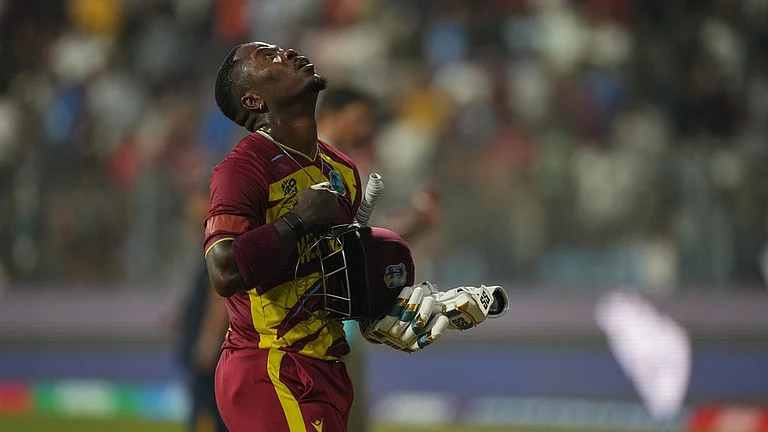These charitable services were started in 1987 when Dr Kumar, along with two colleagues, set up the M.L. Dhawale Trust. Initially, the trio funded the trust which opened clinics in urban slums of Mumbai in areas like Jogeshwari, Malad and Masjid Bunder to serve mathadi workers (porters). Work also started in Palghar and soon the services were extended to rural areas, including adivasi pockets. Today, there are seven clinics in Mumbai and four in Pune. Some of these-in Palghar and in Mahul and Jogeshwari in Mumbai-are free while the rest are subsidised. The adivasis and the slum dwellers pay just Re 1 or Rs 2 for a week's treatment.
Dr Kumar recollects that the initial days were trying: "The most difficult part was to gain people's trust." The adivasis looked at the doctors with suspicion. But "consistency and regularity" built the bridge of trust. Even when monsoons flooded some areas, a doctor would visit his/her beat at the appointed time every week.
As the trust's work was noticed, offers to set up similar clinics in other towns of Palghar district began pouring in. The trust has since set up clinics in six other towns with the help of local NGOS. Forty trainees, who are put through a stringent on-field training module, and a team of permanent doctors of the trust serve these clinics. After the trainees join individual practice, they pledge one free visit a week to these clinics. This practice helps the trust increase its resource pool.
The trust's mobile clinic visits padas (localities) in Palghar. "It's impractical to expect trained doctors to be stationed in these remote pockets permanently," explains Dr Kumar. So the trust has trained five adivasi youths as community health workers. They're taught to administer first-aid to patients who have to visit the clinic the first time to record their medical history. Then the health workers follow up, fill out standard forms, collect medicines and deliver them to adivasi patients.
The trust conducts regular health check-ups and nutrition camps for children and mothers. A survey in the tribal belt revealed the prevalence of anaemia in the local population. The trust has launched specific programmes to tackle the problem.
It's also setting up a full-fledged hospital in Palghar. "There's dire need for medical services here," says Dr Kumar. The number of patients has risen dramatically since the basic structure was put in place. Against 8-9 new patients a week, the hospital now treats as many a day. This is just the beginning for the trust which hopes to extend its services to the district. Right now, the OPD is functioning. The hospital should soon have radiology and pathology departments. A 100-bed admissions ward is also on the anvil.
Help is pouring in for the venture. The one-storey structure that stands today has been built on credit. The consortium of four contractors (incidentally, they were patients of the trust) building the hospital has extended long credit periods to Kumar. ICICI has donated Rs 15 lakh to the Rs 1-crore project. And the 40 permanent doctors follow an unwritten code-of contributing Rs 10,000 annually to this cause. The trust also plans a research centre at the hospital to groom local talent.
Dr Kumar sums it up in his brief but pithy observation: "This has been a team effort." If you wish to be part of this pioneering team or contribute to it, call Dr Kumar Dhawale on 022-5567217/5515170.
























